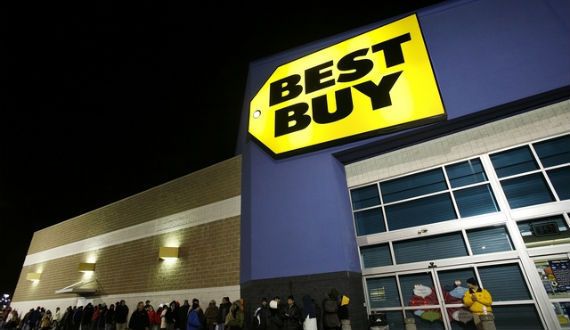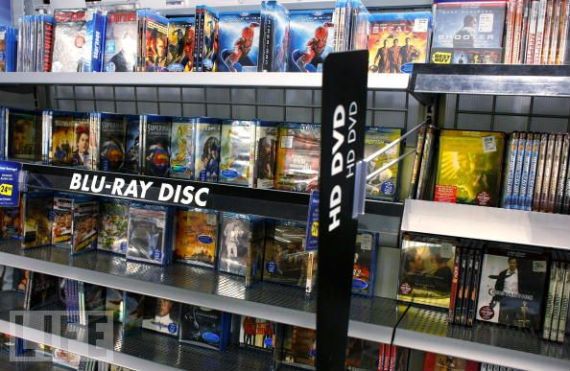The history of home-video media reads like a chapter from the Old Testament Book of Chronicles: “Super 8 begat Betamax, Betamax begat VHS, VHS begat Laserdisc, Laserdisc begat DVD, DVD begat Blu-ray.”
Every time the home video market changes formats it's usually in response to consumer demand – consumers stop buying one type of format so retailers stop selling it. Super 8, Betamax, and Laserdiscs have, for a long time, been out of retail stores and VHS tapes started disappearing from shelves roughly ten years ago. However, a lot of consumers are still reluctant to switch from DVD to Blu-ray - and that reluctance could linger for years.
While we at Screen Rant have discussed whether the time, or need, is right for a switch to Blu-ray – check out “Why Blu-ray is Worth the Extra Price” and “Blu-ray: Is It Time to Make the Move” – there are still a number of vocal proponents, and opponents, to switching.
Both have valid arguments.
However, starting Christmas 2010, consumers may not have a choice in the matter. According to Franklin Harris with The Decatur Daily:
"Best Buy plans to greatly reduce the amount of floor space it devotes to DVDs this holiday season, using that space instead for netbooks and tablet PCs — products that are actually in demand."
With the prices of Blu-ray players now in the $50 range, a wide selection of current movies available on Blu-ray for under $20, and older films being converted to Blu-ray and sold for under $10, it’s not really surprising to hear this type of announcement. Switching to Blu-ray has become inexpensive and once again retailers are responding to consumer demand. It won't be too long before other major brick-and-mortar retailers begin following suit.
I worked for Best Buy from 1999 to 2001 and witnessed this same reorganization when switching from VHS to DVD formats for the exact same reasons mentioned above. Consumer media outlets like Best Buy or Wal-Mart usually keep a 70/30 or 60/40 ratio when stocking their movie shelves with the higher number obviously dedicated to the more popular formats. As the demand for standard DVD movies continues to drop, so too will the ratio of DVD stock in stores - until it levels out around 90/10.
From a business standpoint, Best Buy is making a very sound decision and it’s these forward-thinking decisions that will keep them leading the retail pack in home-media sales. Failing to look at current, and future, consumer trends is what led to the extinction of Movie Gallery and the inevitable shuttering of Blockbuster.
Best Buy representative Erin Bix told Perri Nemiroff of Cinematical:
"While an entertainment reset of some sort will take place in all stores, the product mix will vary depending on the market. We remain committed to CDs, DVDs and Blu-ray and are not cutting assortment. We're simply reorganizing the space. Blu-ray especially remains an important part of entertainment at Best Buy."
No matter how committed to DVDs Best Buy claims to be, you can be assured that, six months to a year from now, the only DVDs available for purchase will be children’s films, TV shows, workout videos, and leftovers in the $5 bin.
It will take at least a few more years for DVDs to be completely phased out of circulation due to all the portable DVD players in existence. However, when manufacturers start selling portable stand-alone Blu-ray players at an economical cost, then DVD’s will join the other obsolete items in the world – like “Hammer” pants, Double Decker tacos, and my dignity. ;)
Does this decision from Best Buy shock you or change how often you will shop at their store? Will there be another format after Blu-ray or are we looking at an all-digital download future? Sound off below and let us know.
Follow us on Twitter @Walwus and @ScreenRant
Source: Daily Finance & Cinematical


